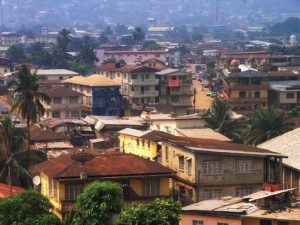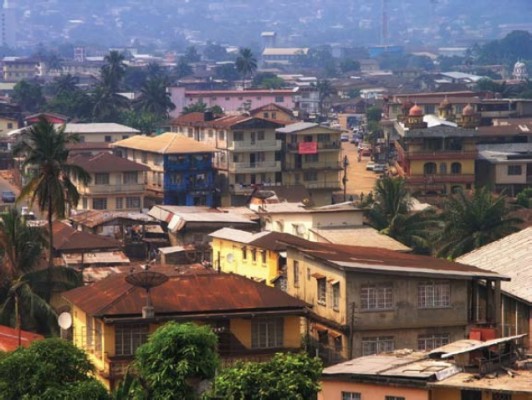
On National Healing Process
Once the leaders, with international support, agree that “War is over.” Once the borders are secure. Once the tens of thousands of militia members lay down arms. Once a government begins to seem representative and viable. Then what?
What can be done to ensure that a country, raw from grief over 50,000 killed and many more maimed, stays on the path to peace? What can be done to ensure that grievances don’t fester into another violent conflict? What can be done to find ways to address real problems – like unequal distribution of resources and power – without folks resorting to destruction and making matters worse?
Transformation at the grassroots is one answer. The Center for Justice and Peacebuilding (CJP) at Eastern Mennonite University believes it might be able to help with this process in Sierra Leone, where a brutal 11-year war ended in 2002.
With $50,000 in seed money from the Catalyst for Peace foundation, CJP will work with Forum of Conscience, a human rights organization based in Sierra Leone, to nurture the formation of local reconciliation committees in all 14 districts of the country. The committees will be made up of respected elders, women, youths and religious leaders. This grassroots reconciliation process will be called “Fambol Tok,” meaning “family talk” in the local lingo.
Over a three-year period, “Fambul Tok is designed to draw all members of the nation’s post-war society – whether victims, offenders or witnesses – back into the Sierra Leonean family,” said Amy Potter, CJP’s lead organizer of this initiative. “This community- healing process of reconciliation and forgiveness is designed to address the roots of conflict at the local level and to restore dignity to the lives of those who suffered from violence.”
Armed conflict in Sierra Leone began when Sierra Leoneans from the Revolutionary United Front joined Liberian fighters and began their revolution by attacking communities in Sierra Leone close to the Liberian boarder in 1991. For more than a decade, combat devastated the social, economic and political life of the country. More than 200,000 Sierra Leone people fled to refugee camps in neighboring states, and a further 1 million were internally displaced. Thousands of civilians lost their arms or legs to brutal amputation.
After the war’s end, a Truth and Reconciliation Commission was set up, as was a criminal court backed by the United Nations. But these measures did not have a direct impact on the vast majority of Sierra Leoneans, who struggle every day in their families and communities to deal with the aftermath of the war.
According to Wikipedia, “The major challenge to the transition and peace-consolidation efforts is addressing the underlying causes of tension and conflict in order to…avoid a relapse into a conflict situation as in the past.”
Fambol Tuk is designed to help address this “major challenge.”
